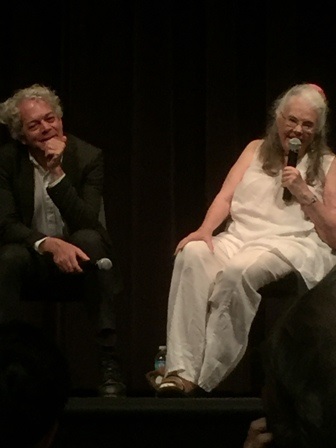


*Doubtless on the Web there's various guides to the iconography of both volumes of Kill Bill. Particularly helpful is "Charting the Tarantino Universe" by Dave Kehr in The New York Times 4/11/2004.
Here are fair use excerpts from the commentary 'May I?' and 'The Matrix': Why my kids won't be seeing the latest R-rated blockbuster by Dale Buss in The Wall Street Journal on 5/23/2003: